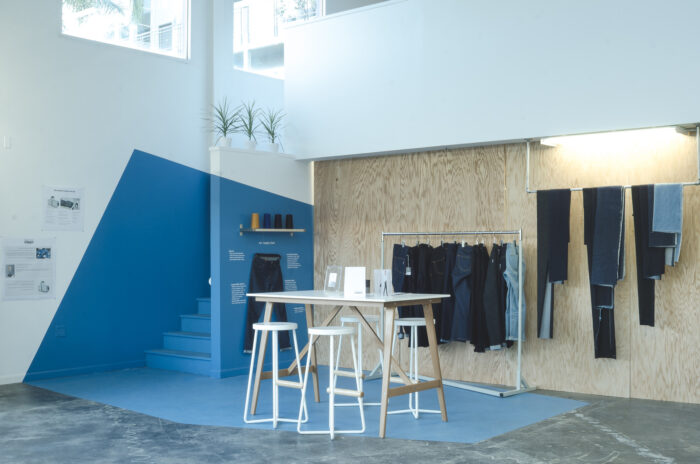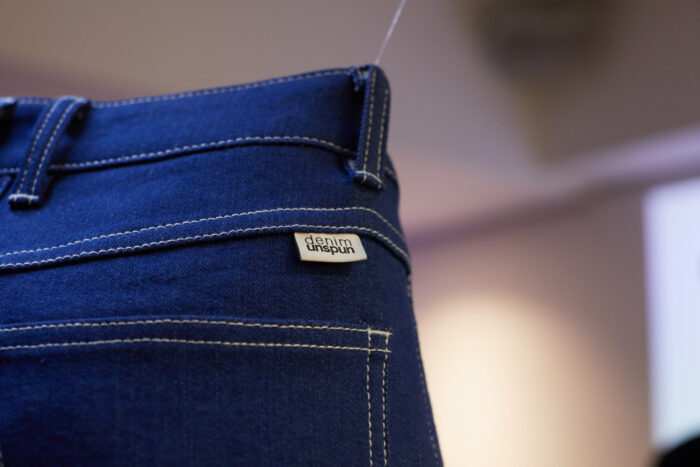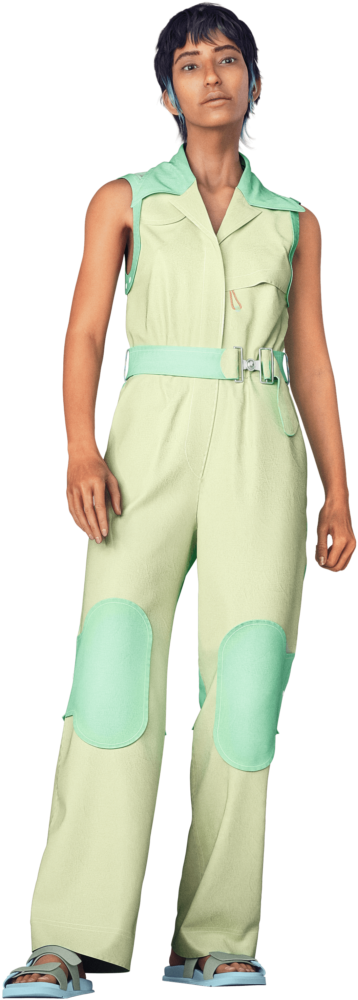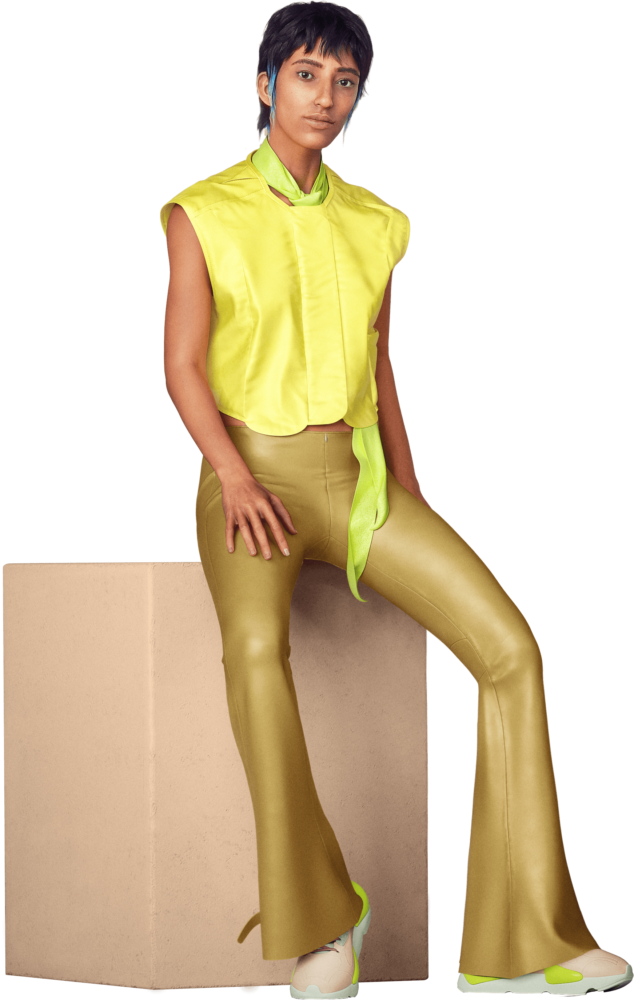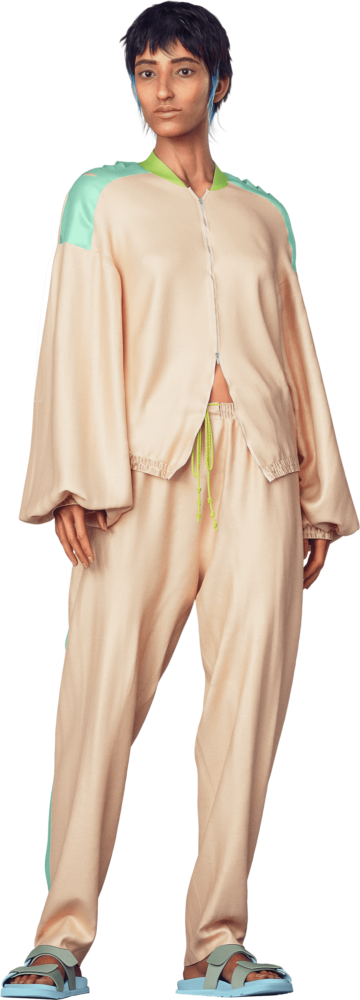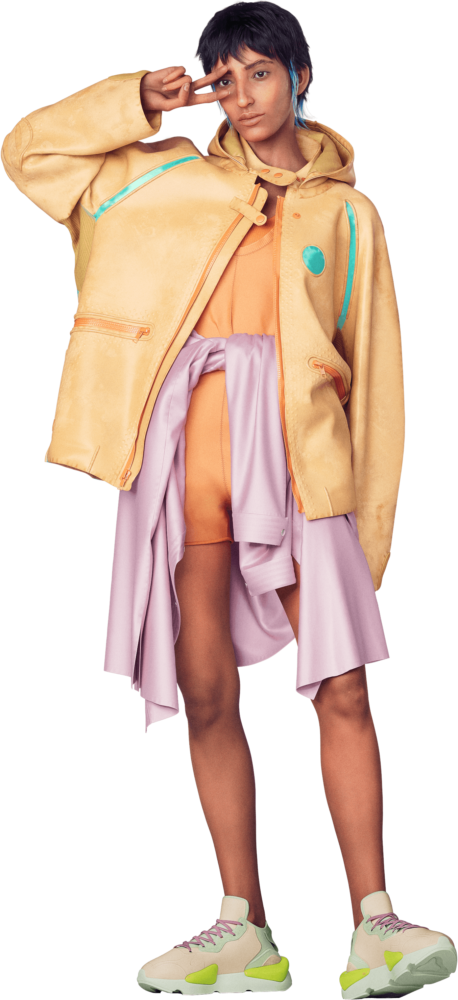unspun
unspun’s own estimated support needed to scale.
By stopping the guessing game and instead selling the jeans before making them, unspun is creating bespoke jeans with a perfect fit based on algorithms from a body scan. This eliminates the need for inventory and reduces waste while also changing the way fashion is designed and produced.
Overproduction is a key challenge facing today’s fashion industry. Billions of pieces of clothing are produced every year, yet a majority of these garments are thrown out before their first birthday. It’s time for a change of behavior rather than another unsustainable change of clothes. Unspun has just the thing for the job.
Aiming to reduce global carbon emissions by 1%, this on-demand innovation scans a customer’s body and creates jeans based on their exact size – removing both excess stock and almost all waste, and resulting in a product with a perfect fit that will last longer in their wardrobe.
When I was a kid, grown-ups painted a bright future with things like flying cars, human-like robots and 3D-printed clothes. We can now make one of these three a reality.
Walden Lam, Co-Founder & CEO at unspun
Impact Potential BY ACCENTURE
Seamless customer experience
and perfect fit
14,800 metric tons of CO2 emissions reduced
with unspun’s Direct-to-Consumer solution
and additional impact of 153,000 metric
tons CO2 emissions can be enabled through
business licensing and micro factories in
2030, compared to conventional cotton jeans
Comparable to the total life-cycle impact
in CO2 emissions of 600,000 cotton jeans
from the Direct-to-Consumer solution, and
6 million cotton jeans from the business
licensing and micro factories
All size inclusiveness
The planet positive impact potential is estimated by Accenture with the purpose of demonstrating how unspun has the potential to create multi-dimensional value when scaling.
The high-level estimation is based on unspun’s potential to scale and its output in 2030 (~1,2 million pairs of jeans sold directly to consumers, ~110 business licenses sold, and ~22 number of micro factories in use). Unspun has the potential to reduce CO2 emissions in 2030 with 14,800 metric tons/year based on the direct-to-consumer solution, which is comparable to the CO2 emissions from the total lifecycle of 600,000 pairs of cotton jeans. Further, unspun has the potential to reduce CO2 emission in 2030 with 153,000 metric tons/year through other brands licensing the unspun solution or utilizing unspun’s micro factory solution, which is comparable to the CO2 emissions from the total lifecycle of 6 million pairs of cotton jeans.
Not only does unspun reduce waste, but by providing all size inclusiveness through the custom-made jeans produced to all sizes upon demand, it enables a seamless customer experience with perfect fit.
More on Accenture’s Impact Potential.
These materials are (A) for information purposes only, (B) do not constitute an offer to subscribe for, buy or sell securities of any of the Innovations mentioned herein or any other securities, and (C) should not be relied upon to make any investment decisions.
Team
The team behind unspun is made up by a total of 20 people. The main members are Beth Esponnette (Executive Chairman, Chief Product Officer and Co-founder), Walden Lam (Co-founder and Chief Executive Officer) and Kevin Martin (Co-founder and Chief Technology Officer). With their extensive experience within design, material science, commerce, branding, controls and mechanicals, it’s safe to say that unspun truly is a vertically integrated business.

Awards
- Finalist the Index project (2021)
- Winner Fashion Tech, San Francisco Design Week Awards (2020)
- Longlisted in the Dezeen Awards (2020)
- GenT 2020 (Sustainability) – Walden Lam
- Forbes’ 30 Under 30 2020 (Manufacturing & Industry) – Kevin Martin
- Popular Science The Greatest Innovations of 2020, Best of What’s New Award (2020)
- Winner, H&M Foundation Global Change Award (2019)
- Named one of 100 Best Inventions 2019, Time Magazine (2019)
- Winner, H&M Foundation Global Change Award (2017)
Contact
Walden Lam, Co-founder and CEO
walden@unspun.io
unspun.io
Facebook | Twitter | Instagram
Download
See the start-up presentations to learn more.
